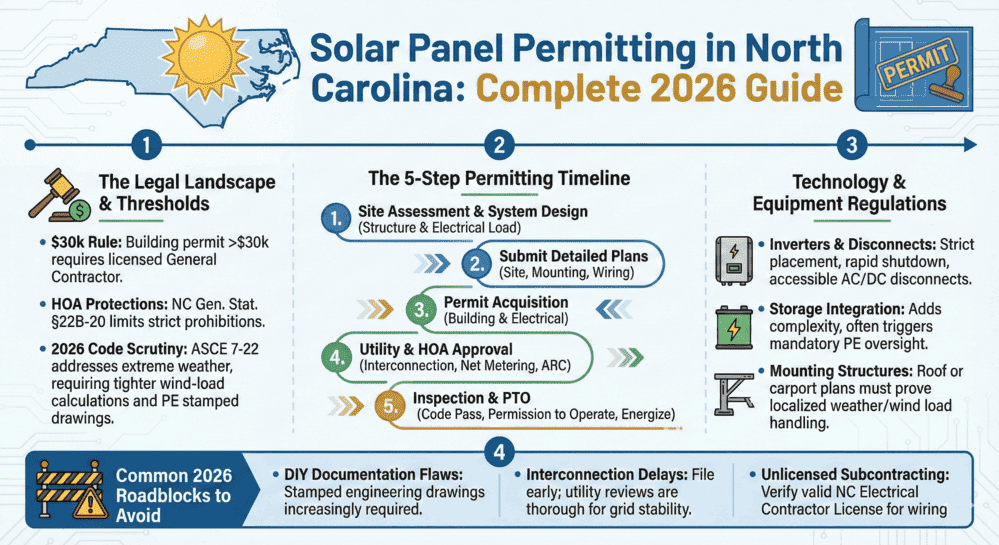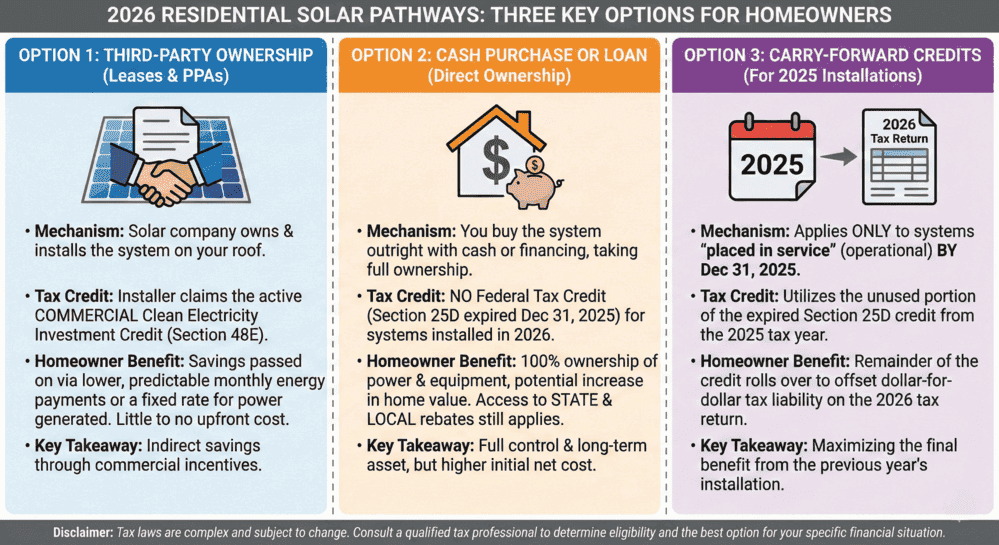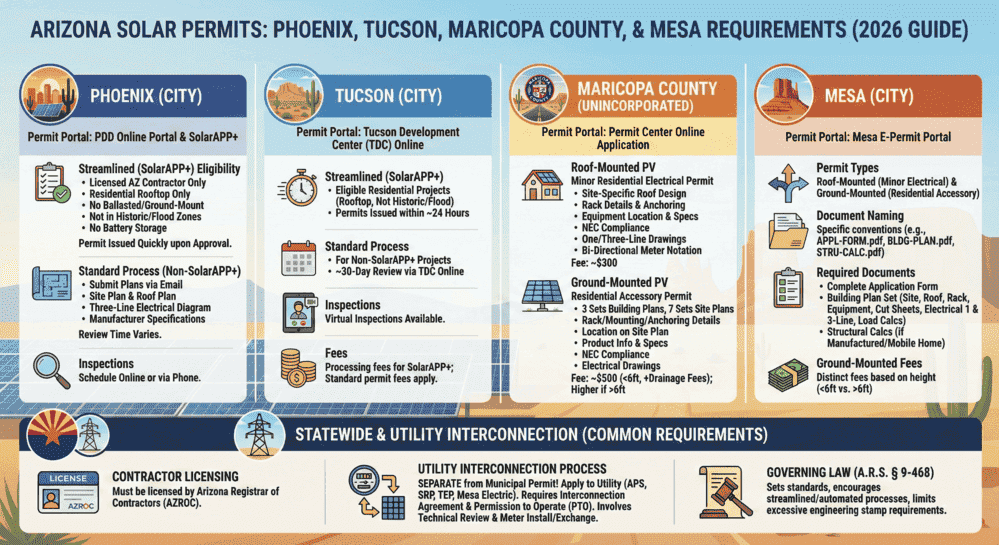NV Energy offers net metering and solar battery rebates for Nevada homeowners installing solar panels. Here are the key program details:
Net Metering Credits:
- NV Energy credits excess solar energy at 75% of retail electricity rates
- Monthly billing cycle with credits applied to future electric bills
- Example: $0.075 per kWh credit when retail rate is $0.10 per kWh
Battery Storage Rebates:
- $3 million total program budget with tiered incentive structure
- Time-of-use rate customers: $0.19 per watt hour (up to $3,000 maximum)
- Standard rate customers: $0.095 per watt hour (up to $1,500 maximum)
- Rebates cover up to 50% of equipment costs
Interconnection Requirements:
- $130 application fee through PowerClerk portal
- Document review and final inspection required
- Solar installers typically handle application process
Nevada ranks among the top 10 states for solar installations nationwide. The state’s abundant sunshine combined with NV Energy’s supportive utility programs makes going solar with NV Energy financially attractive for homeowners seeking to reduce electricity costs and increase energy independence.
This comprehensive guide covers NV Energy’s net metering policies, available financial incentives, community solar program status, interconnection procedures, and investment value analysis for Nevada residents considering solar installation. For more solar resources, visit our solar blog.

Understanding NV Energy’s Net Metering Policy
NV Energy provides net metering to Nevada residents who install solar panels or other renewable energy generation systems.
Net metering allows solar system owners to offset electric costs using the power their systems generate. Any surplus solar energy produced gets sold back to the utility company. Professional solar design ensures systems maximize these net metering benefits.
NV Energy Net Metering: Credit Structure And Monthly Billing
NV Energy compensates excess solar electricity at 75% of the retail electricity rate rather than the full retail rate.
Solar system owners receive “excess energy credits” on future electric bills valued at three-quarters of the standard electricity rate. For example, if the retail electricity rate stands at $0.10 per kWh, NV Energy credits $0.075 per kWh for excess solar energy returned to the grid. Understanding Nevada’s solar policies helps homeowners maximize these benefits.
Important 2025 Update: In September 2025, regulators approved changes to net metering calculations in Northern Nevada. New solar customers installing systems after October 1, 2025 in Northern Nevada will have credits calculated every 15 minutes rather than monthly. Southern Nevada customers and existing Northern Nevada solar owners continue using monthly netting cycles. This change affects how quickly excess energy credits accumulate for new installations.
For customers using monthly netting, all solar energy sent to the grid during a monthly billing period gets netted against all energy NV Energy delivered to the home within that same period.
Consider this example: NV Energy supplies 200 kWh of electricity in a given month while the solar system sends 250 kWh back to the grid. This creates a surplus of 50 kWh sent to NV Energy beyond what the utility provided. The utility then credits those 50 kWh at 75% of the retail electricity rate.
Using $0.075 per kWh as the excess solar energy value, NV Energy would credit $3.75 for the extra 50 kWh. This credit applies toward offsetting energy costs on the next electric bill.
Available Financial Incentives For Solar Installations
Beyond net metering, NV Energy does not provide solar panel rebates or incentives.
NV Energy previously offered a solar storage rebate program with a $3 million budget allocation through June 2023. The program featured a tiered rate structure where earlier applicants received higher incentive amounts, with rates increasing for customers using time-of-use (TOU) rate plans. These programs aligned with Nevada’s clean energy initiatives statewide.
Previous Battery Storage Rebate Rates (Program Closed June 2023):
- Time-of-use rate customers received $0.19 per watt hour with maximum rebates of 50% of equipment costs up to $3,000
- Non time-of-use rate customers received $0.095 per watt hour with maximum rebates of 50% of equipment costs up to $1,500
While NV Energy’s utility rebate program has closed, solar batteries remain eligible for the federal 30% Residential Clean Energy Tax Credit for systems with 3 kWh capacity or larger. Commercial solar installations can also benefit from federal tax incentives for battery storage systems.
Community Solar Availability In Nevada
NV Energy does not currently operate a community solar program, though one has been in development. Nevada’s clean energy sector continues exploring alternative solar access options.
In late 2020, the utility received approval to build its first community solar project: the Mojave High School Solar Project. Qualifying customers could have participated in the Expanded Solar Access Program to access energy produced by this system at rates lower than standard electricity, reducing electricity bills. Research from the University of Nevada supports community solar development.
The Expanded Solar Access Program closed as of January 2023.

Solar Permit Solutions
Affordable Solar Permit Plans
Don't let permit costs slow your project. Professional plan sets at competitive prices — all 50 states, fast turnaround.
Navigating The NV Energy Interconnection Process
Solar applications get submitted to NV Energy through their PowerClerk application portal. Installers typically handle this submission process. Working with Solar Permit Solutions ensures proper documentation and compliance.
An application fee of $130 applies. Some solar installers cover this fee while others pass it to customers, making this an important discussion point during the installation planning process. Understanding common permit mistakes prevents costly delays.
Required Documentation Checklist
NV Energy requires the following documents for interconnection approval. Solar Permit Solutions prepares and organizes these technical documents to ensure compliance:
- ✓ Installation Contract – Signed agreement between homeowner and installer
- ✓ Site Plan – Property layout showing solar system placement
- ✓ Technical Diagram – Electrical single-line diagram with system specifications
- ✓ ESD Data Specifications – Equipment specification sheets for all major components
- ✓ Final Inspection Card and/or Satisfied Building Permit – Local jurisdiction approval documentation
- ✓ Interconnection Agreement – Signed utility agreement authorizing grid connection
Professional solar design services prepare accurate technical documentation that meets NV Energy requirements, reducing the likelihood of application delays or rejections.
NV Energy Interconnection Timeline
Understanding the typical interconnection timeline helps homeowners plan their solar installation schedule. While exact timeframes vary based on application completeness and inspection availability, the following represents standard processing periods:
Total Timeline: 6-10 weeks from application submission to Permission to Operate
Experienced solar installers and permit specialists streamline this process by submitting complete, accurate applications that minimize revision requests. Nevada’s electric generation regulations govern approval timeframes, though utility workload may occasionally extend processing periods during peak solar installation seasons.
Solar Permit Solutions Role:
Professional permit services handle PowerClerk portal submission, technical documentation preparation, utility correspondence, and revision management throughout the interconnection process. This expertise helps avoid common application errors that delay project timelines.
Local Building Permits:
In addition to NV Energy interconnection, solar installations require local building permits from city or county authorities. Solar Permit Solutions provides the engineering stamps and technical documentation needed for these local permits, which installers submit to the appropriate jurisdiction.
Evaluating Solar Investment Value With NV Energy
Going solar with NV Energy represents a worthwhile investment for Nevada homeowners.
While the utility does not offer full-retail net metering, the existing net metering program still delivers substantial savings on power bills. Federal tax incentives for battery storage help homeowners reduce solar battery costs while increasing energy independence. Proper permit applications ensure smooth system activation.
To secure the best quality installation at competitive pricing within NV Energy’s service territory, comparing quotes from multiple local solar installers proves essential. Professional solar design services optimize system performance and regulatory compliance.
NV Energy Solar Savings: System Cost & ROI Breakdown
Understanding the financial impact of going solar with NV Energy requires analyzing system costs, net metering credits, and federal incentives. The following table illustrates typical investment scenarios for Nevada homeowners:
*Annual savings calculated using average Nevada electricity rate of $0.12/kWh with 75% net metering credit rate. Actual savings vary based on consumption patterns, system production, and current NV Energy rates.
**Payback period assumes net cost after federal tax credit and does not include maintenance costs or utility rate increases, which historically improve solar ROI over time.
Battery Storage Addition Costs (Post-Rebate Program):



